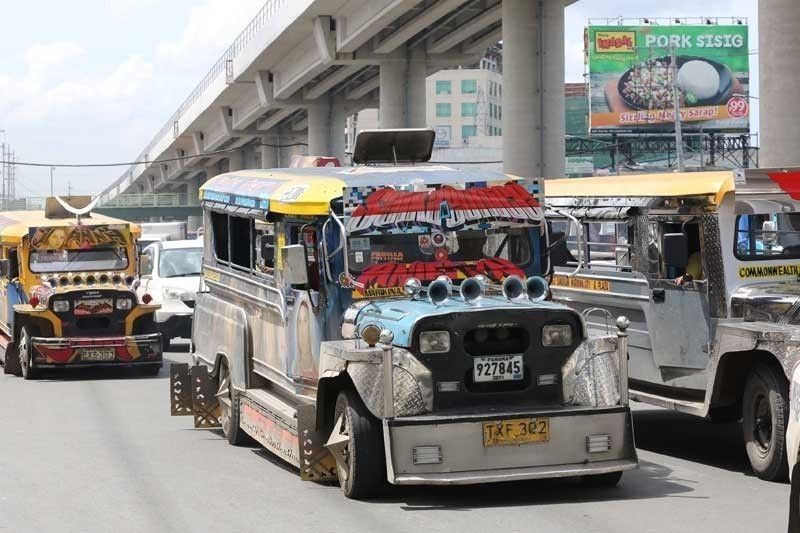Expert warns of crisis in public transport, pushes reforms

MANILA, Philippines — A sustainable mobility advocate has warned of a looming crisis in the public transport sector due to the coronavirus disease 2019 (COVID-19) pandemic.
In an interview with “The Chiefs” on Cignal TV’s One News/TV 5 on Monday night, Robie Siy, of the Move as One Coalition, said the transport sector is like a “ticking time bomb” because of the impact of COVID-19 on its daily operations.
But he said the crisis also offers opportunities for enduring reforms, including a change in the way buses are deployed and the drivers are paid, as well as the development of special lanes and stations for bicycles.
The coalition is suggesting a P110-billion investment in infrastructure and reforms in the public transport sector as the country grapples with the pandemic, to encourage people to use mass transport instead of private vehicles.
Siy said 50 percent of those in public transport might go out of business due to physical distancing that must be observed to prevent the spread of the virus.
“What we are thinking is a crisis in public transport because of physical distancing… We have lost already more than half of our public transport capacity. That is a staggering number,” Siy said.
He cited the Metro Rail Transit 3, which used to have some 350,000 passengers per day before the pandemic.
But because of physical distancing, the rail system will only carry no more than 50,000 passengers per day.
He said many transport operators have uncertain future if they are to rely mainly on fair box revenues.
“In the Philippines, public transport operators are required to be financially self-reliant. In London or Singapore, you have the government managing a public transport service and controlling it,” he added.
Siy said the government must go into a “leasing or service contracting” system, wherein transport operators will be required to form a consortium before they are given a contract to serve.
“They have this mode wherein public transport operators are on a performance-based contract. This will enable the government to set standards, monitor the performance of operators and impose penalty in case of non-compliance,” he said.
He proposed what he described as “one good strategy,” which is to put public transport in dedicated lanes to minimize traffic.
Siy said the pandemic also pressures people to use private vehicles. Because of the “apprehension about using public transport,” people would rather use their motorcycles or cars, worsening the traffic situation.
Priority
Once mass transportation resumes operations under the general community quarantine (GCQ), the Land Transportation Franchising and Regulatory Board (LTFRB) said the government would prioritize buses and modern jeepneys in the roll-out.
LTFRB chairman Martin Delgra III said this was because these modes of transportation have a bigger capacity.
“Buses are a top priority because public transport will be running at least half their capacity, then we need to deploy those modes that can ferry more passengers,” Delgra said during the Laging Handa public briefing.
The Department of Transportation (DOTr) said that traditional jeepneys come third in priority since modern jeepneys have higher capacity and are equipped with automatic fare collection system that prevents physical contact.
“We are limiting the movement of people and one way of doing such is by also limiting the number of available public transport,” DOTr said.
In areas that don’t have buses or modern jeepneys, the DOTr will allow traditional jeepneys to operate.
Public mass transportation is still barred under the modified enhanced community quarantine (MECQ) currently implemented in Metro Manila and several other high-risk areas.
Mass transport is expected to resume only upon the scaling down of restrictions under GCQ.
Several local governments, however, have approved the use of tricycles within the bounds of their cities following the go-signal from the Department of the Interior and Local Government.
While mass transport is suspended, the government ordered companies to provide shuttles for their employees to and from work. Only private cars, company shuttles and bicycles, among others, are allowed under MECQ.
The DOTr has released the guidelines on the use of private cars, including the two persons per row rule.
For company shuttles, it should be ensured that only 50 percent capacity would be followed.
Rented public utility shuttles need a special permit from the LTFRB, while those that companies own don’t, the DOTr said the company only needs to show documents authorizing them to operate under MECQ or GCQ.
Rented private vehicles, meanwhile, need to show proof of rent of a company authorized to operate during the pandemic.
Meanwhile, Anthony Leachon, special adviser to the Inter-Agency Task Force, expressed concerns over people who flocked to malls on Monday, the first day of implementation of the MECQ in Metro Manila.
Leachon said if the public would no longer observe physical distancing, proper hand washing and use of facial masks, there will be a “second wave” of COVID-19 in the country.
He urged the public to keep their guard up against COVID-19 to contain the virus.
Leachon said there is a need for local government units to shoulder part of the expenses in testing indigents for the virus.
“We should be able to test one million to say that it’s significant… But we are still far off the target. There are certain governments that should help shoulder the expenses so we can meet the target,” he said.
The government’s goal is to conduct 30,000 tests per day by the end of the month, but as of May 17, only more than 11,000 tests were conducted. Neil Jayson Servallos
- Latest
- Trending





























